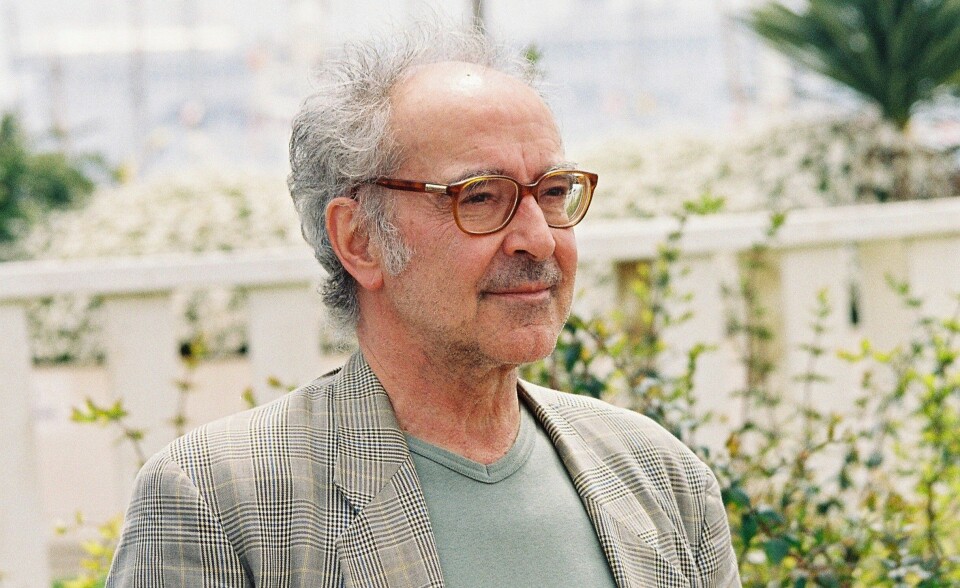-
Residents ordered to stay home due to high risk of avalanche in French Alps
One person has been injured in an avalanche in Val Thorens, while thousands of homes are without power
-
People in France snubbing US travel, report travel agents
The political context, weak euro against the dollar, and border issues have all been blamed
-
Reaction to François Hollande's call for France to create refugee status for US researchers
Former president lends support to scheme for scientists reportedly 'forced into exile' by the Trump administration
Legendary French filmmaker Jean-Luc Godard dies aged 91
The director was known for his punchy, controversial style, and was one of the founders of the Nouvelle Vague movement

Filmmaker Jean-Luc Godard, one of the major figures of French cinema over the past 50 years, has died at the age of 91.
The director was a co-founder of the ‘Nouvelle Vague’ (New Wave) and was a prolific filmmaker. He was best-known for films including A bout de souffle, Le Mépris, Pierrot le fou, La Chinoise, and Détective.
Mr Godard was born on December 3, 1930, in Paris, to a Franco-Swiss family. His father was a doctor and his mother came from a rich Protestant family, so the young Jean-Luc had a privileged upbringing between France and Switzerland.
He was able to explore interests including sport and painting, before attending the Sorbonne, where he spent his time in the photography dark rooms and the Cinémathèque. He wrote for the new editions of La Gazette du cinéma ou Les Cahiers du cinéma.
His peers were director and actor François Truffaut, director Eric Rohmer, and director Claude Chabrol.
Films
He made his first film, a short documentary, Opération béton, in 1954. Five years later, he would make his first feature-length piece, A bout de souffle (Breathless), which was a major critical and public success. The film was made along with Mr Truffaut, Mr Chabrol, and Jean-Paul Belmondo.
The film would later be hailed as the founding piece of the Nouvelle Vague, along with Le Beau Serge (1958) and Les quatre cent coups (1959) by Mr Truffaut., who would go on to be Mr Godard’s lifelong rival and partner in the movement.
Mr Godard became known for his fresh pacing, dialogue, and punchy writing style. Stand-out films in the 1960s included Le Mépris (1963) and La Chinoise (1967).
In the 1970s he would experiment with filming styles and short pieces, while in the 1980s he would return to the public stage, including with Sauve qui peut (la vie).
Five years later, he released Détective, which starred Nathalie Baye, Johnny Hallyday, Laurent Terzieff, Claude Brasseur, and Jean-Pierre Léaud.
(Please note that the following trailer contains violent imagery and strong language.)
In the 1990s, he released Histoire(s) du cinéma, which led some to say that Mr Godard “uses cinema as a way to think”.
Cannes success
In the 2000s, Mr Godard himself starred in films by Jacques Richard and Alain Fleischer, and his film Socialisme was selected at the Cannes film festival in 2010 in the Un Certain Regard selection. He later won prizes at Cannes for Adieu au langage (2014) and Le livre d’image (2018).
He never stopped making films, even into his older age. His style was inimitable and always controversial, winning as many detractors as fans.
Tributes begin to pour in
French actor and filmmaker Alain Delon, who worked with Mr Godard, said: “Godard was a creator, a real filmmaker. He was someone who had something to say, who wrote cinematography in his own way.”
His death was reported by Libération and confirmed by France Inter.
Famous figures and organisations from the world of cinema have taken to social media to pay tribute to Mr Godard.
Writer and actor Stephen Fry wrote: “Adieu, Jean-Luc Godard.
“I watched Breathless for the umpteenth time again just two weeks ago. It still leaps off the screen like few movies. That scene between them in the hotel: how many other directors could have managed that in so small a space and made it so captivating?”
RIP Jean-Luc Godard. Artist, thinker, rule breaker, MAÎTRE. One of my favorite artists who will forever inspire me. He was 91. pic.twitter.com/DD32wec529
— Sasha Grey (@SashaGrey) September 13, 2022
Jean-Luc Godard was one of the few artists to actually reinvent the language of movies. As melancholic and politically incendiary as his work could be, I often reflect on how he could capture pure joy on screen––in style and in substance. Rest in peace. pic.twitter.com/6TzOWfuvlw
— Brendan Hodges (@metaplexmovies) September 13, 2022
Related articles
French people love cinema - and their tickets fund new films
French cinema finds way for deaf and hearing viewers to share films
Irish film festival celebrates French cinema with historic French ship
























